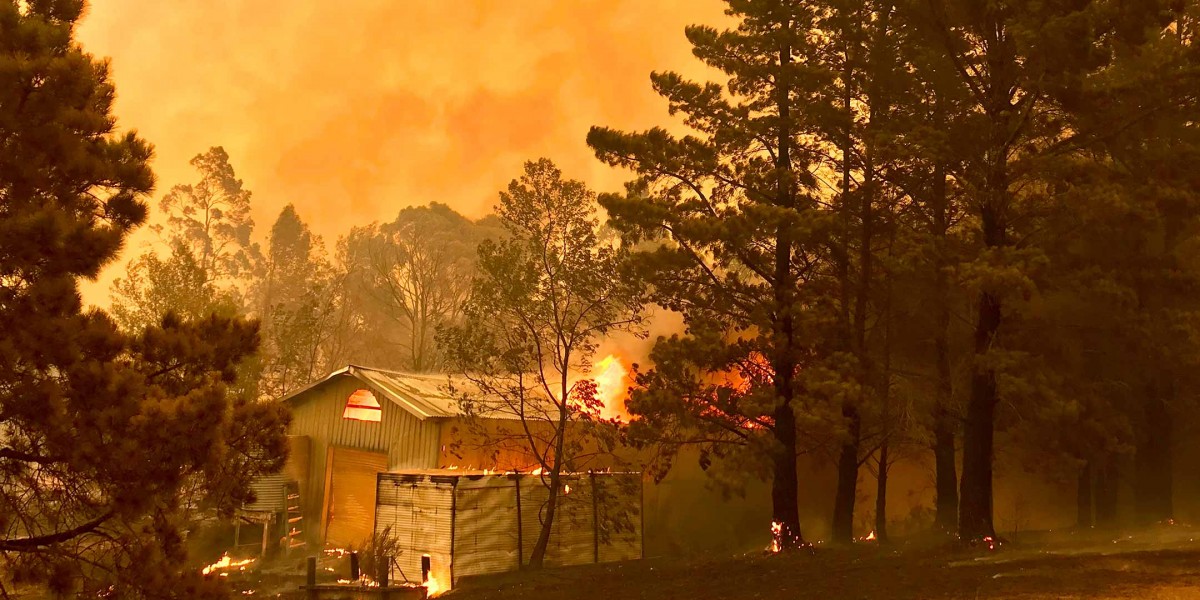The reaction to the bushfire crisis has been nothing short of extraordinary. Over summer, the world has mobilised to support our bushfire-affected communities and wildlife, raising almost half a billion dollars so far. At the Vocal Minority, we wanted to look at this phenomenon from a fundraising and advocacy point of view.
Fundraising efforts so far
Celebrities have played a huge part in the relief effort with Celeste Barber’s $51.2 million campaign (Facebook’s largest-ever fundraiser) the obvious standout. Leonardo DiCaprio’s Earth Alliance donated $4.3 million, Ellen DeGeneres $1.5 million and Sir Elton John announced a $1 million donation mid-concert. Cricket legend Warnie auctioned off his baggy green cap for over $1 million while Nick Kyrgios kick-started the tennis world’s response which, at the end of the Australian Open raised almost $5 million.
On the ground, there are many amazing stories of support too. Kids have been donating their Christmas money, shipments of food and clothing organised by community groups, and a group of mates made several 10-hour trips to cook a BBQ for bushfire victims. As RFS Commissioner Shane Fitzsimmons said, “The depth and breadth of donations reflects the best we’ve got in humanity.”
A nation of givers
But even in “normal” years, Australians are a generous bunch. According to the Charities Aid Foundation’s World Giving Index, Australia ranks number four (after the US, Myanmar and New Zealand) in charitable giving over the decade from 2009 to 2018. Last year, $143 billion was given to not-for-profits – most of it by the Australian community rather than government.
McCrindle’s latest Australian Community Trends Report highlights our giving patterns: Five in six Australians give to charities or not-for-profit organisations (83%). More than three quarters of Australians (77%) give at least annually, with one in four (27%) giving at least once a month. One in six (17%) do not give at all.
Last year’s report also noticed a rise in what McCrindle calls the “needs responder”, with two in five (40%) reporting that they are most likely to give when they hear about a need or an issue as a one-off, rather than giving regularly. We can expect this figure to be much higher in next year’s report as a result of the bushfires.
Tell us your opinion
Do you give to a charity? Why have you chosen that particular cause? Do you donate money or goods, or do you volunteer? Let us know! We’d love to hear what matters to you. Contact us here.
Managing the message
The Red Cross, Salvation Army, St Vincent de Paul as well as the NSW RFS and the Victorian Bushfire Appeal are the main recipients of charity funds. They have all been subject to criticism that they were “stockpiling” cash and slow to release funds to those in need.
The Red Cross in particular received a lot of flak, initially committing to spend $30m of the initial $115 million via one-off grants to bushfire-affected victims. Red Cross’ NSW/ACT director’ Poppy Brown made the point that there also needs to be spending on more long-term fixes. She said, “Recovery for a bushfire is a marathon, not a sprint and we know it’s going to take communities a long time to recover.” It announced in early February that it is doubling its funds to more than $61m for immediate relief.
Here at the Vocal Minority, there is some sympathy for the Red Cross – especially those staff and volunteers who had to face an angry public – but there is a feeling that the warning signs were there. In April last year it already became clear that a serious bushfire season was on its way. The Red Cross should have got ahead of the message and made clear exactly how donated money was going to be spent.
The Morrison Government
The PM and his team have made a long string of serious gaffes. It started in November when it became clear the PM had ignored bushfire warnings from fire chiefs and tried to downplay its seriousness. From there it went from bad to worse while the eyes of the world turned to Australia. The Hawaii holiday and the infamous “handshake” mixed with images of people seeking shelter on a beach and kangaroos fleeing fire, and suddenly the PM became synonymous with the crisis.
The refusal to talk about climate change and the inability to pro-actively find policy solutions only adds to the woes. It’s hard to imagine how the Morrison government got its messaging so wrong – you only have to look across the ditch for an example of how to do empathy and crisis management properly. Politically, Jacinda Ardern had an incredibly tough year in 2019 but came out of each situation with her reputation enhanced.
Where to from here?
Australia has always lagged behind the US in charitable giving by the top 1% wealthiest Americans (think Warren Buffett, the Bill & Melinda Gates Foundation, Mark Zuckerberg). Bequests, large donations and foundations are commonplace in the US – Buffett and Gates created The Giving Pledge in 2019 to encourage other billionaires to also donate in large numbers.
Amazon’s Jeff Bezos, who for many years had been criticised for his lack of charitable giving, zoomed to the top of the Philanthropy 50 in 2018 when he announced a $3 billion philanthropic initiative that focuses on homelessness and education. Should this become a focal point for charities in Australia, rather than trying to squeeze more out of everyday Australians?
Tax initiatives
Australia could look at a policy that could make donations even more tax effective. The UK, for example, instituted Gift Aid in 1990. This is a tax incentive that enables charities to claim back the basic tax rate from the government on every pound donated. According to the UK Revenue and Customs’ data for the year to March 2019, $2.66 billion was claimed by charities, up $177 million from the year before, from eligible donations of over $10 billion. Is it time for the Australian government to do the same?
While Australians have outdone themselves in their commitment to giving and have shown their absolute best side in dealing with a crisis, the key in all of this is “where to from here?” How can we take this incredible outpouring of generosity and turn it into a movement that effects change?
Tell us what you think by adding to our Facebook page here: https://www.facebook.com/thevocalminority.com.au/

